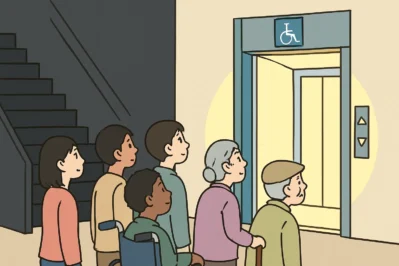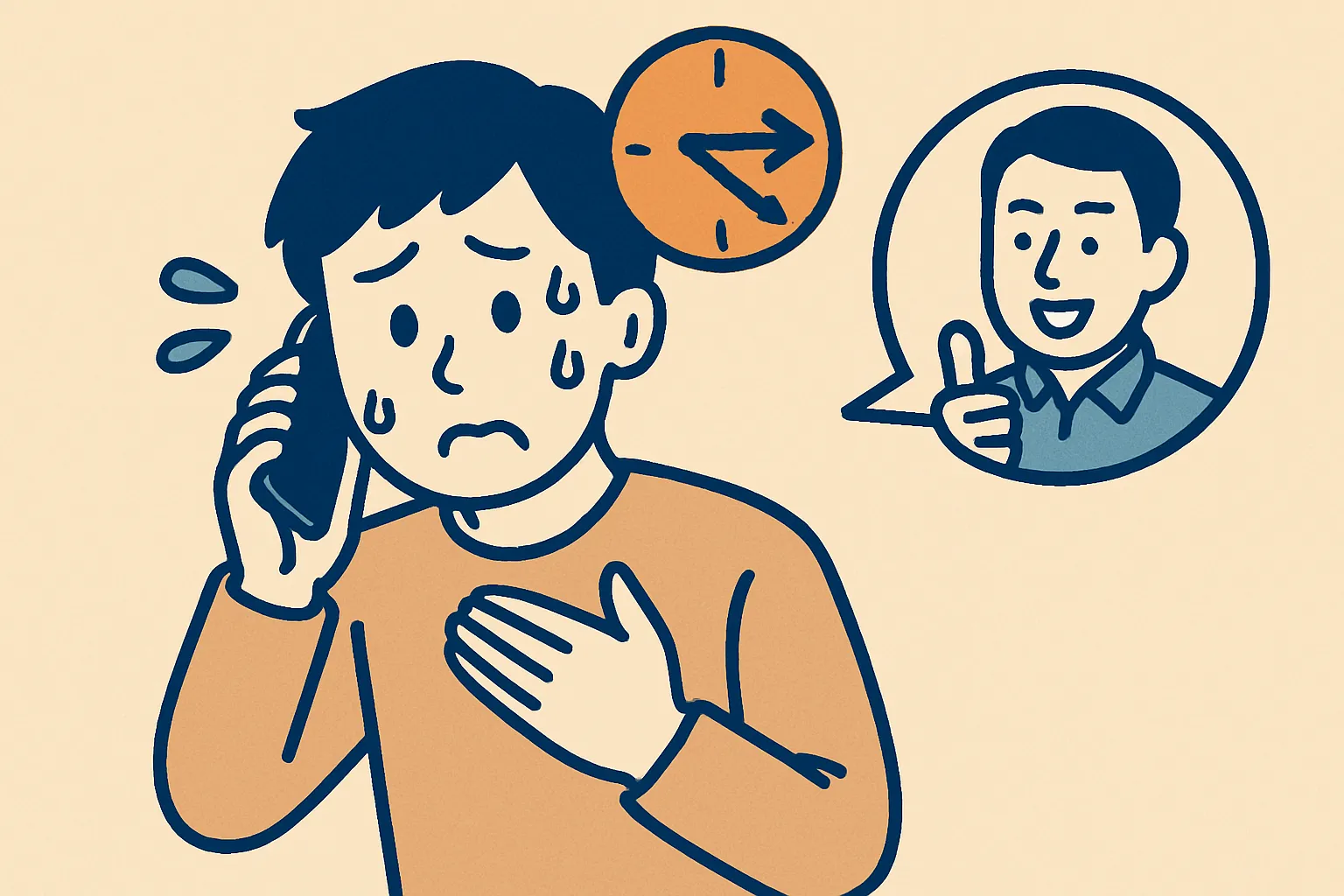Your Voice Matters: Discussing Public Transport Accessibility in Korean
Hello! Welcome to [Maeil Hangul], here to upgrade your Korean skills!
Today, we’re diving into a topic that’s both important and very relevant in Korea right now: social equality. Specifically, we’ll learn how to talk about the accessibility of public transportation for everyone. These phrases are perfect for understanding the news, participating in deeper conversations, and expressing your own opinions about creating a more inclusive society.
Lately in Korea, there has been a powerful and growing conversation about ensuring that subways and buses are accessible for all citizens. You might have seen news reports or social media posts about disability rights activists raising their voices. By learning today’s vocabulary, you’ll not only improve your Korean but also gain a deeper insight into a significant social movement happening right now.
Let’s get started!
Core Expressions You Need to Know
Here are some essential terms to help you join the conversation.
1. 교통 약자 (Gyotong Yakja)
- Pronunciation [Romanization]: Gyotong yakja
- English Meaning: The “transportation vulnerable”; this includes people with disabilities, the elderly, pregnant women, and people with young children.
- Detailed Explanation: This is a very common and respectful term used in news, official documents, and public campaigns. It’s a compound word made of 교통 (gyotong), meaning ‘transportation’, and 약자 (yakja), meaning ‘the weak’ or ‘the vulnerable’. It’s an inclusive term that acknowledges that various people can face challenges using public transport.
- 💡 Pronunciation Tip:
When you say 약자, the second part 자 (ja) sounds stronger than you might expect, almost like [yakjja]. This is because a plain consonant like ‘ㅈ (j)’ often becomes a tense, stronger sound when it follows a final consonant like ‘ㄱ (k)’. This is a common rule in Korean called 된소리되기 (doensori-doegi), or “tensification.” It makes your pronunciation sound much more natural!
2. 이동권 (Idonggwon)
- Pronunciation [Romanization]: Idonggwon
- English Meaning: The right to mobility.
- Detailed Explanation: This is a key term in the Korean disability rights movement. It combines 이동 (idong), meaning ‘movement’ or ‘mobility’, with 권 (gwon), meaning ‘right(s)’. It refers to the fundamental right of every person to move freely and access all parts of society, including public transportation.
- 💡 Pronunciation Tip:
Let’s break it down: 이 (i) – 동 (dong) – 권 (gwon). The vowel in 권 (gwon) is ‘ㅝ’ (wo), which is a combination of ‘ㅜ (u)’ and ‘ㅓ (eo)’. To make the sound, start by shaping your lips to say “u” and then quickly open them to say “eo” (like the ‘o’ in ‘ought’). It sounds very similar to the English word “won.” Practice saying “i-dong-gwon” smoothly.
3. 편의 시설 (Pyeoni Siseol)
- Pronunciation [Romanization]: Pyeoni siseol
- English Meaning: Convenience facilities / amenities. In this context, it specifically means accessibility features.
- Detailed Explanation: This term literally means ‘convenience’ (편의) ‘facilities’ (시설). While it can refer to any amenity, when discussing accessibility, it points to things like elevators, wheelchair lifts, low-floor buses, and ramps. For example, “지하철역에 편의 시설이 부족해요” (The subway station lacks accessibility features).
- 💡 Pronunciation Tip:
The vowel ‘의’ (ui) can be tricky! When it’s in the first syllable of a word, it’s pronounced [ui]. However, in any other syllable, like in 편의, it is usually pronounced just like ‘ㅣ’ (i). So, instead of trying to say “pyeon-ui,” you should say [pyeoni]. This simple trick will make you sound like a pro!
4. -을/를 보장하다 (-eul/reul Bojanghada)
- Pronunciation [Romanization]: -eul/reul bojanghada
- English Meaning: To guarantee / to ensure.
- Detailed Explanation: This is a powerful verb phrase used in formal or serious contexts, making it perfect for discussing rights and policies. You attach it to a noun to say that you guarantee that thing. It adds a strong sense of conviction to your statement. For example, “정부는 교통 약자의 이동권을 보장해야 합니다” (The government must guarantee the right to mobility for the transportation vulnerable).
- 💡 Pronunciation Tip:
Listen carefully to the ‘ㅈ (j)’ sound in 보장 (bojang). It’s a plain consonant, so it shouldn’t have a strong puff of air like ‘ㅊ (ch)’. Keep it soft and clear. The verb ending 하다 (hada) is one of the most common in Korean, so you’re probably already a master at it!
Example Dialogue
Let’s see how these expressions work in a real conversation.
A: 수진 씨, 오늘 뉴스 봤어요? 시청역에서 이동권 시위가 있었대요.
(Sujin, did you see the news today? They said there was a protest for the right to mobility at City Hall Station.)
B: 아, 정말요? 모든 교통 약자를 위한 시위는 정말 중요하다고 생각해요.
(Oh, really? I think protests for all the transportation vulnerable are so important.)
A: 맞아요. 우리 동네 역에는 아직 엘리베이터가 없어서 편의 시설이 더 필요해요.
(That’s right. My neighborhood station still doesn’t have an elevator, so it needs more accessibility features.)
B: 그러니까요. 모든 사람의 이동권을 보장해야죠.
(I know, right? We must guarantee everyone’s right to mobility.)
Culture Tip & Trend Deep Dive
In Seoul, you may have seen or heard about the “Disability Rights Protests” (전국장애인차별철폐연대 시위) in the subway system. Activists have been campaigning for years, demanding that the government fulfill its promise to install elevators in every single subway station and introduce more low-floor buses.
When you hear them chanting, you’ll now recognize the key phrases: “이동권 보장!” (Guarantee the right to mobility!).
Using these terms shows you’re not just learning the language; you’re also paying attention to the important social issues that matter to people in Korea today. Mentioning 이동권 or 교통 약자 in a conversation will surely impress your Korean friends and show that you have a nuanced understanding of the culture.
Let’s Practice!
Time to check what you’ve learned.
- Fill in the blank:
A city that is good for the _________ is a city that is good for everyone.
(Hint: The term for people who find it difficult to use public transport)교통 약자에게 좋은 도시가 모두에게 좋은 도시예요.
- Make a sentence:
Using the verb -을/를 보장하다, write a short sentence about a right you think is important.
(Example: 우리는 표현의 자유를 보장해야 합니다. – We must guarantee freedom of expression.)
Great job today! You’ve learned some powerful vocabulary to discuss a very meaningful topic.
Why not try using one of today’s expressions in a sentence? Leave a comment below! We’d love to see what you come up with.






